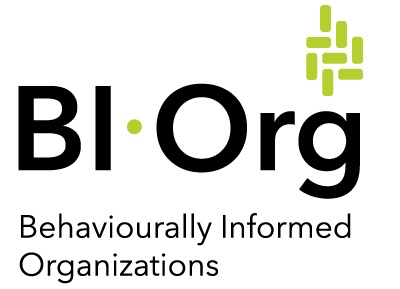ABOUT THE PARTNERSHIP
Every organization is fundamentally in the business of behaviour change.
Whether it be a government trying to get business to comply with environmental regulation, a business trying to get its customers to be loyal to their products, or a financial advisor encouraging a client to start saving for retirement, behavior change is critical to organizational success. Despite its centrality to organizations, we do not have a good scientific framework for behaviour change, nor a good understanding of how organizations can embed insights from behavioural science into their operations.
Our Challenge!
Our key challenge is to develop an overarching framework for using behavioural science. We ask; how can behavioural insights (BI) best be embedded in organizations to achieve better outcomes, improve the efficiency of processes, and maximize stakeholder engagement? Our team brings together researchers from 24 universities and 3 non-academic organizations, and 20 partner organizations that include government units, for-profit entities, consulting firms, consumer groups, and academic centres.
The proposed partnership comes at a potentially transformative time for the field – BI has developed expertise in large-scale field experimentation and big-data analytics. Governments and businesses have been attracted to BI with its promise of developing human-centricity and efficient solutions, and a recent Nobel Prize in Economics to Richard Thaler (a key proponent of applied BI) has captures the imagination and spurred interest. The partnership approach allows us to build theory based on practical problems, and to test and refine them in field settings that have practical implications for our partners, for society, and for knowledge development.
Three Themes
The Behaviourally Informed Organizations Partnership is hosted by the BEAR research centre at the University of Toronto.
Our overarching research question will be tackled in three themes with the goals of 1) developing a comprehensive framework of behaviour change; 2) extending and applying this framework to complex behavior change challenges (business and social); and 3) identifying mechanisms (resources, capabilities, and operating models) by which organizations can best deliver on the promise of BI. We plan to use a spectrum of research methods (both qualitative and quantitative) to achieve this objective, and aim to produce outputs that include scholarly writing (e.g., journal articles, books, monographs), practitioner oriented materials (e.g., white papers, academic-practitioner conferences, guidebooks), and tools for consumers and citizens (e.g., tip-sheets, decision aides, podcasts).
We expect this partnership to make contributions to policy innovation, business excellence, and the science of behaviour change. By developing a framework for using behavioural science, this partnership aims to place Canada at the forefront of the growing and potentially impactful BI community worldwide.

